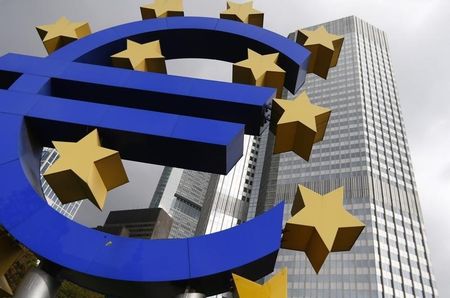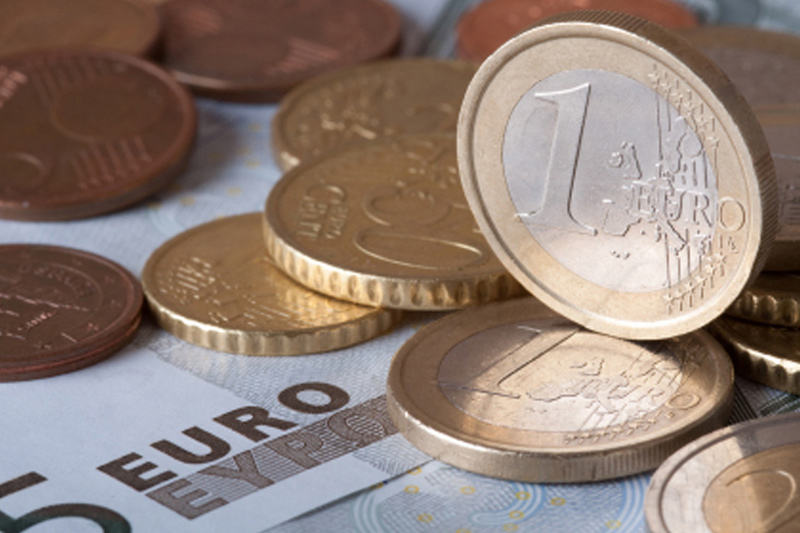By Sumanta Dey
(Reuters) - The European Central Bank will need to expand its balance sheet by around 1 trillion euros (790.62 billion pounds) for a stimulus programme to be effective in boosting inflation, according to a Reuters poll, and it may be difficult to reach that target.
Some form of quantitative easing - buying asset-backed securities, corporate bonds or sovereign debt - is one of the last policy options the ECB has left to fight deflation risks and rekindle growth in the monetary union.
Euro zone inflation slipped to a five-year low of 0.3 percent in September. Greece, Italy, Slovakia, Slovenia and Spain have reported deflation.
But, while it may be easier to buy financial or corporate instruments, purchasing government debt of euro zone nations is fraught with legal challenges and strongly opposed by Germany.
A 1 trillion-euro increase in the ECB's balance sheet is roughly equivalent to the central bank's lending in two emergency refinancing operations at the end of 2011 and in early 2012 to save the currency union.
It is also in line with what President Mario Draghi said he would target, although how the ECB will achieve it or whether it would help stir inflation is not clear.
"The efficiency of a QE programme to improve both the growth and inflation outlook is limited," said Michel Martinez, the chief euro economist at Societe Generale, who forecast the ECB would need to expand its balance sheet by 1.5 trillion euros.
Forecasts in the poll ranged from 0.5 trillion to 3 trillion euros. Even the highest forecast is only slightly more than what the U.S. Federal Reserve has added to its balance sheet during the financial crisis, using several bond-buying programmes.
The Fed is expected to end those purchases on Wednesday, although it's also expected to signal it will put off for some time raising interest rates.
Weak price rises and pay growth have also thrown into doubt the timing of the first rate hike from the Bank of England, which shut its own money printing press over two years ago. [BOE/INT]
The recent crash in global crude oil prices is likely to soften inflation even further and prevent any new ECB policy from having an immediate effect on inflation.
So far, demand for the ECB's targeted refinancing operations (TLTROs), aimed at improving lending to businesses, has been lacklustre. Only 82.6 billion euros was taken up in September, much less than expected.
Economists in the latest poll predict banks will bid for 170 billion euros at the next auction in December, about what money market traders expect - roughly 37 percent short of the 400 billion total on offer. [ECB/REFI]
The ECB is also likely to spend around 300 billion euros buying asset-backed securities and covered bonds, economists predicted in a similar poll last month. But last week it spent only 1.7 billion euros under the new purchase programme.
Taken together, that means the central bank will probably fall short of its balance sheet target, unless it begins to buy sovereign debt or corporate bonds.
Twenty-five of 35 economists who answered an extra question in the survey said corporate bond purchases by the ECB were a good idea. Many large euro zone banks did not answer the question, though.
While the central bank has yet to make such an announcement, sources told Reuters last week it may make a decision as early as December, with a view towards beginning such purchases early next year.
Referring to whether the ECB buying corporate bonds was a good idea, Samuel Slama, an economist at Fathom Consulting, said, it is "better than nothing but still need sovereign QE."

(Polling and analysis by Hari Kishan and Ashrith Doddi; Editing by Ross Finley and Larry King)
